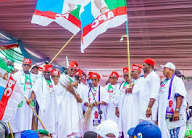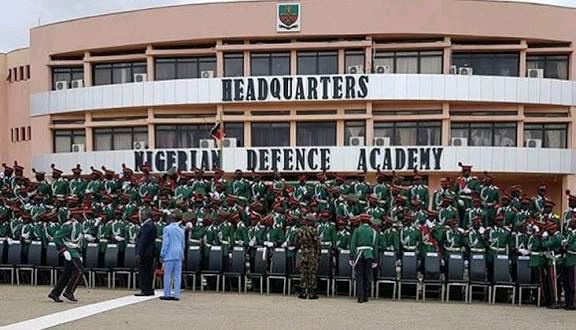Top 10 Richest Royal Families in the World

Royalty and opulence are often intertwined, yet certain dynasties possess fortunes that transcend gilded crowns and ceremonial thrones.
Though many monarchs today serve as figureheads, their lineages frequently preside over vast wealth amassed from centuries of dominion, strategic land acquisition, sovereign wealth funds, and investments that span the globe.
This compilation delves into ruling royal families whose assets, sway, and financial portfolios rival major corporations. As of 2025, behold the world’s most affluent royal dynasties, complete with insights into their fortunes, illustrious members, and the modern empires they command.
10. The Alaouite dynasty, Morocco’s reigning family since the 1600s, melds religious prestige with contemporary business acumen. Descendants of the Prophet Muhammad, the family is led by King Mohammed VI, who ascended the throne in 1999. The Alaouites own palatial residences across cities like Rabat, Fez, and Marrakech, exerting a discreet yet formidable influence over Morocco’s economic life.
9. House of Liechtenstein – $9 Billion
Nestled between Switzerland and Austria, Liechtenstein conceals a potent princely lineage. Prince Hans-Adam II retains significant influence and owns LGT Group, a private bank managing over $300 billion in assets. Their fusion of traditional nobility and modern capitalism renders them exemplars of sustainable royal prosperity.
8. House of Al Maktoum (Dubai, UAE) – $18 Billion
Led by Sheikh Mohammed bin Rashid Al Maktoum, the Al Maktoum family metamorphosed Dubai from a desert outpost into a global megacity. With limited oil reserves, they diversified early, birthing mega-projects like Emirates Airlines and DP World. Extravagance is a hallmark — the family possesses private islands, custom-built stables, and breathtaking palaces.
7. House of Bolkiah (Brunei) – $30 Billion
Sultan Hassanal Bolkiah of Brunei governs one of the world’s most opulent royal households. Brunei’s oil and gas reserves have bolstered the royal coffers since the 1960s. The Sultan’s possessions are legendary — 7,000 cars, a palace with 1,788 rooms, and a private Boeing 747. Through the Brunei Investment Agency, the family owns luxury properties like London’s Dorchester Hotel.
6. House of Chakri (Thailand) – $60 Billion
Thailand’s Chakri dynasty commands a discreet yet immense fortune. Central to this is the Crown Property Bureau, a holding entity managing real estate across Bangkok and investments in major corporations like Siam Cement. In 2018, King Vajiralongkorn transferred control of the bureau’s assets directly to himself, effectively transforming state wealth into personal holdings. With stringent laws against criticizing the monarchy, public transparency remains minimal.
5. House of Windsor (United Kingdom) – $88 Billion
Iconic yet more restrained, the Windsors oversee an estimated $88 billion fortune, largely tied to estates like the Crown Estate, Duchy of Cornwall, and Duchy of Lancaster. These are technically public or institutional trusts, yet they fund the monarchy and King Charles III’s duties. The family also holds private wealth, including Balmoral Castle and Sandringham Estate. Lacking oil riches, the Windsors enjoy the benefits of centuries of accumulated real estate and global prestige.
4. House of Al Nahyan (Abu Dhabi, UAE) – $300+ Billion
Abu Dhabi’s ruling family controls one of the world’s largest sovereign wealth funds: the Abu Dhabi Investment Authority (ADIA), valued at roughly $790 billion. The family’s sway over ADIA grants them unparalleled access to capital. Sheikh Mohammed bin Zayed (MBZ), the de facto leader, has overseen investments in technology, real estate, infrastructure, and sports. Notably, Sheikh Mansour owns Manchester City FC, a potent instrument of soft power. The family’s assets encompass yachts, palaces, and entire hospitality empires.
3. House of Al Thani (Qatar) – $335 Billion
The Al Thani family has leveraged the world’s third-largest natural gas reserves into an empire of wealth and influence. The Qatar Investment Authority (QIA) manages over $450 billion in investments, ranging from Harrods to The Shard. Sheikh Tamim bin Hamad Al Thani perpetuates the dynasty’s global expansion through astute investments and soft diplomacy, including hosting the 2022 FIFA World Cup and funding Al Jazeera.
2. House of Al Sabah (Kuwait) – $360 Billion
Kuwait’s Al Sabah dynasty presides over one of the world’s oldest sovereign wealth funds: the Kuwait Investment Authority (KIA). The royal family’s share of national wealth is estimated at $360 billion. Their investment strategy is more conservative than their Gulf neighbors, yet they maintain royal estates, jets, and global properties. Their “rainy day” financial philosophy has forged a safety net that continues to expand even as global oil demand shifts.
1. House of Saud (Saudi Arabia) – $1.4 Trillion
At the pinnacle is Saudi Arabia’s House of Saud, with an estimated $1.4 trillion fortune — indeed, trillion. This figure encompasses their immense control over Saudi Aramco, the world’s most valuable oil company, and the sprawling Public Investment Fund (PIF). Crown Prince Mohammed bin Salman (MBS) steers this wealth, with the PIF investing in technology, tourism, sports, and automotive ventures globally. From NEOM, a futuristic $500 billion city, to stakes in Lucid Motors and Newcastle United FC, their influence is boundless.








